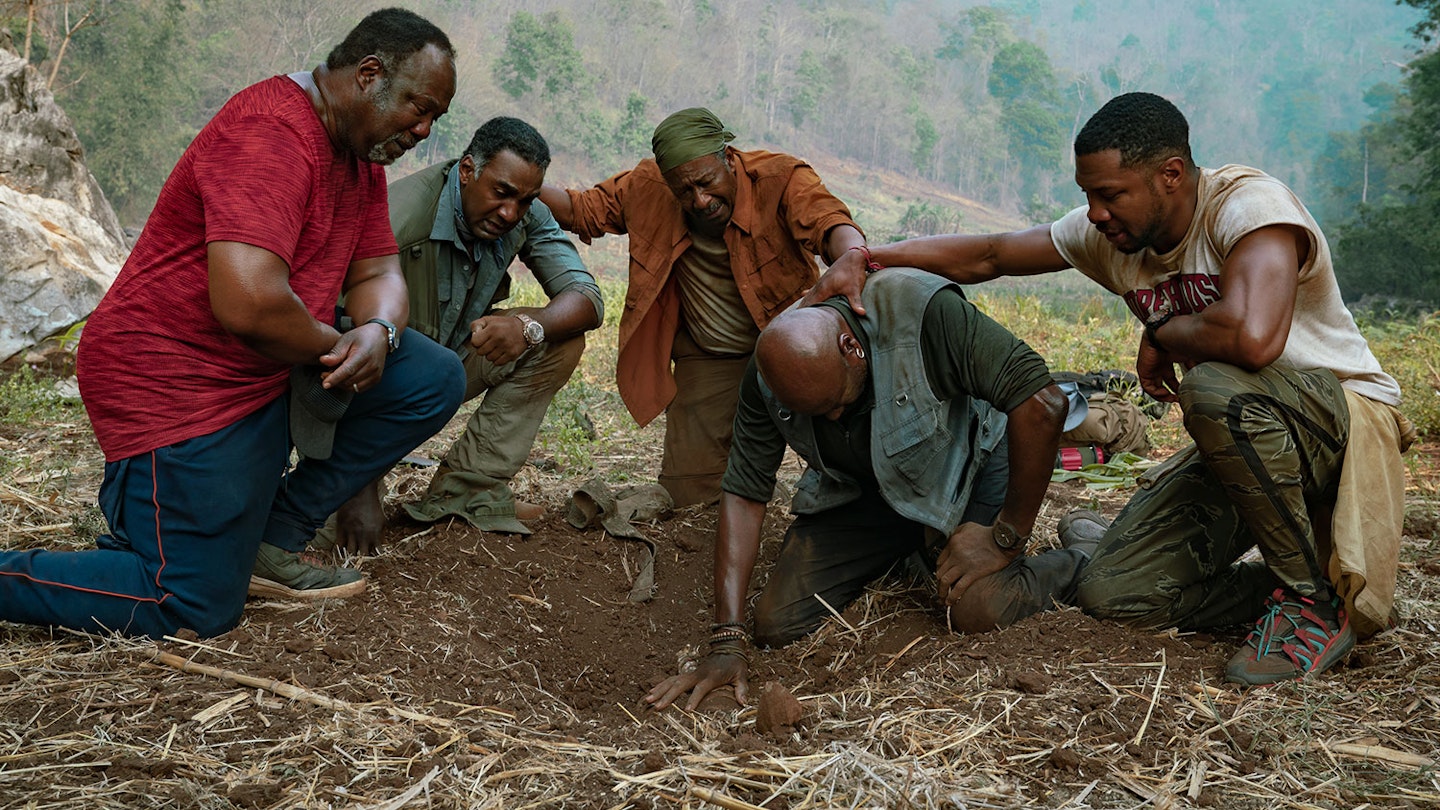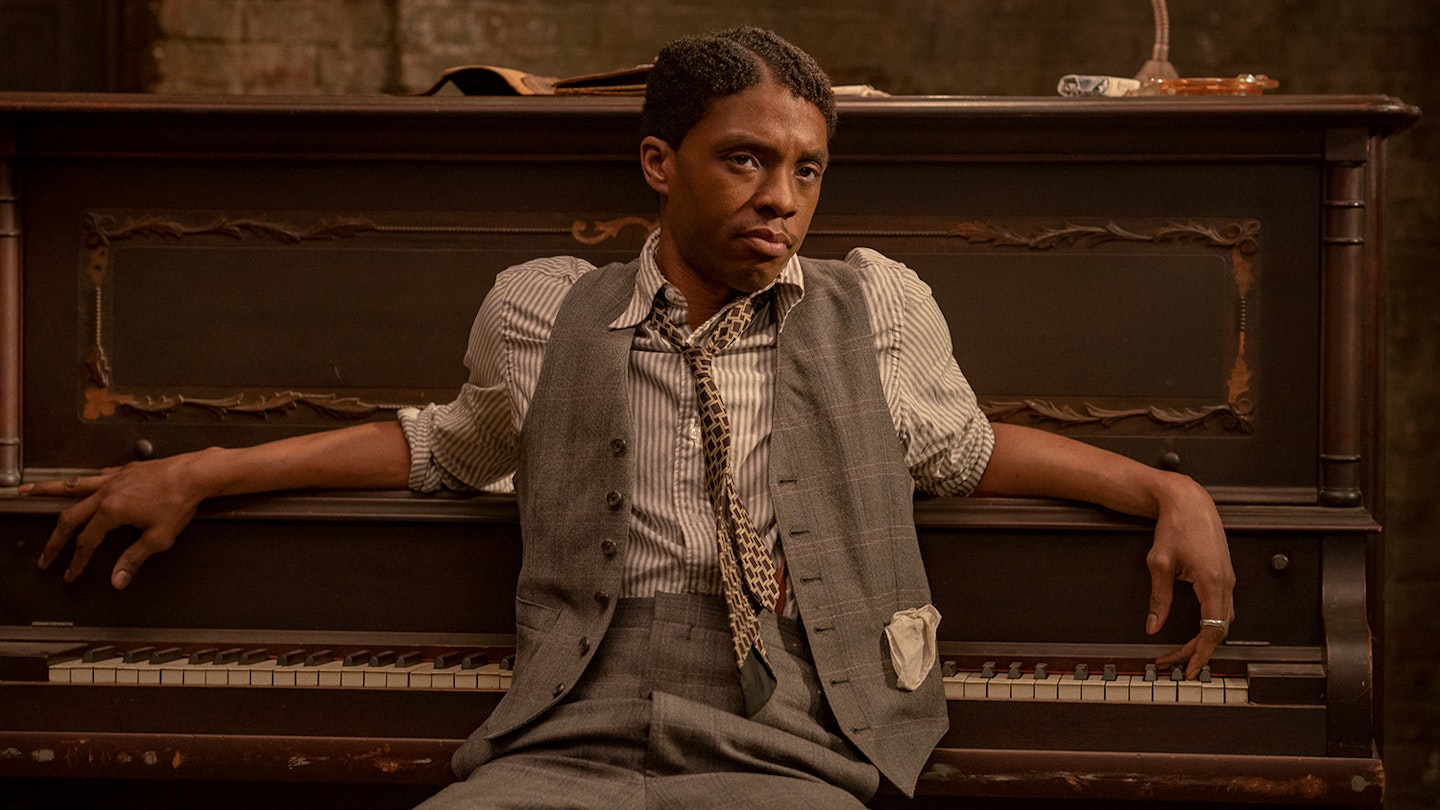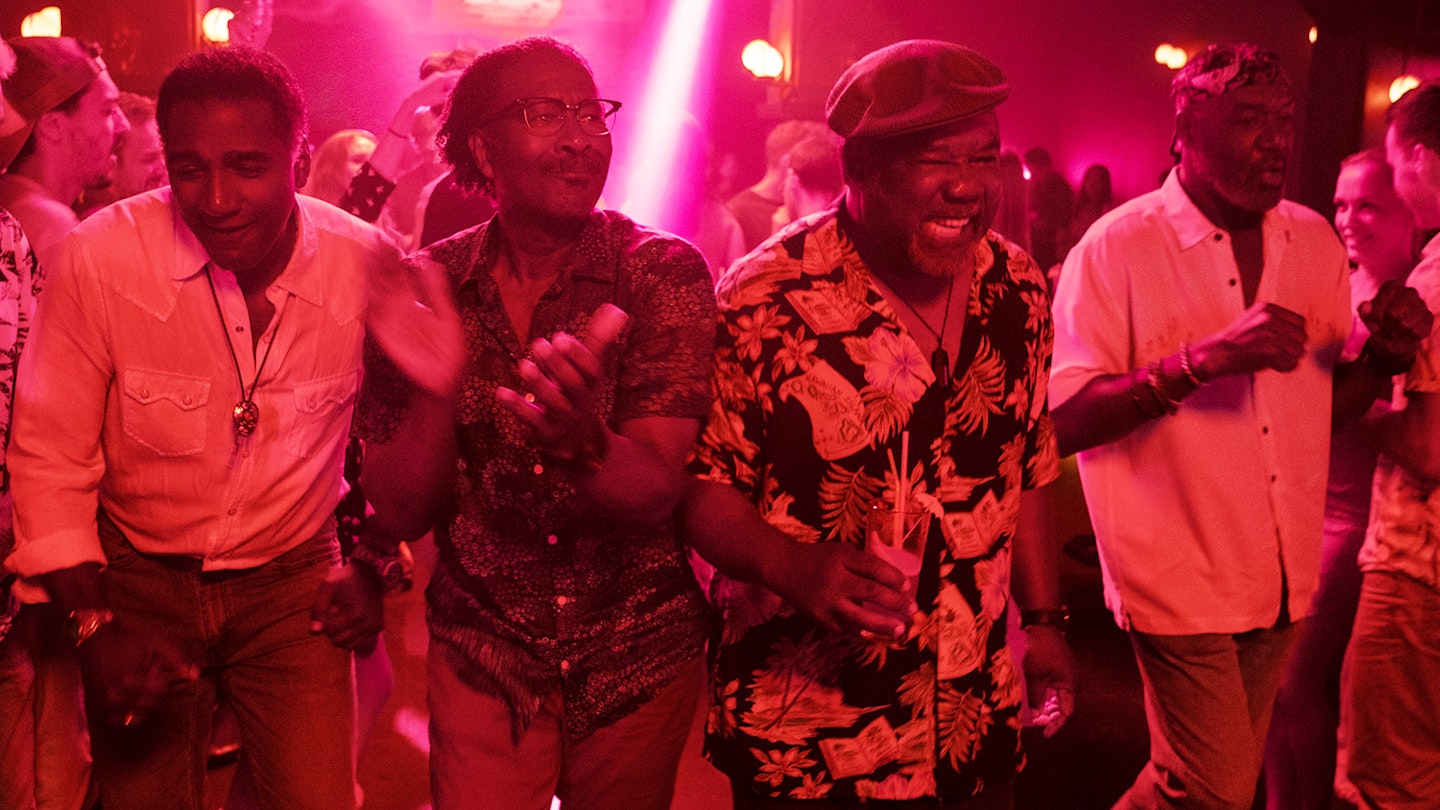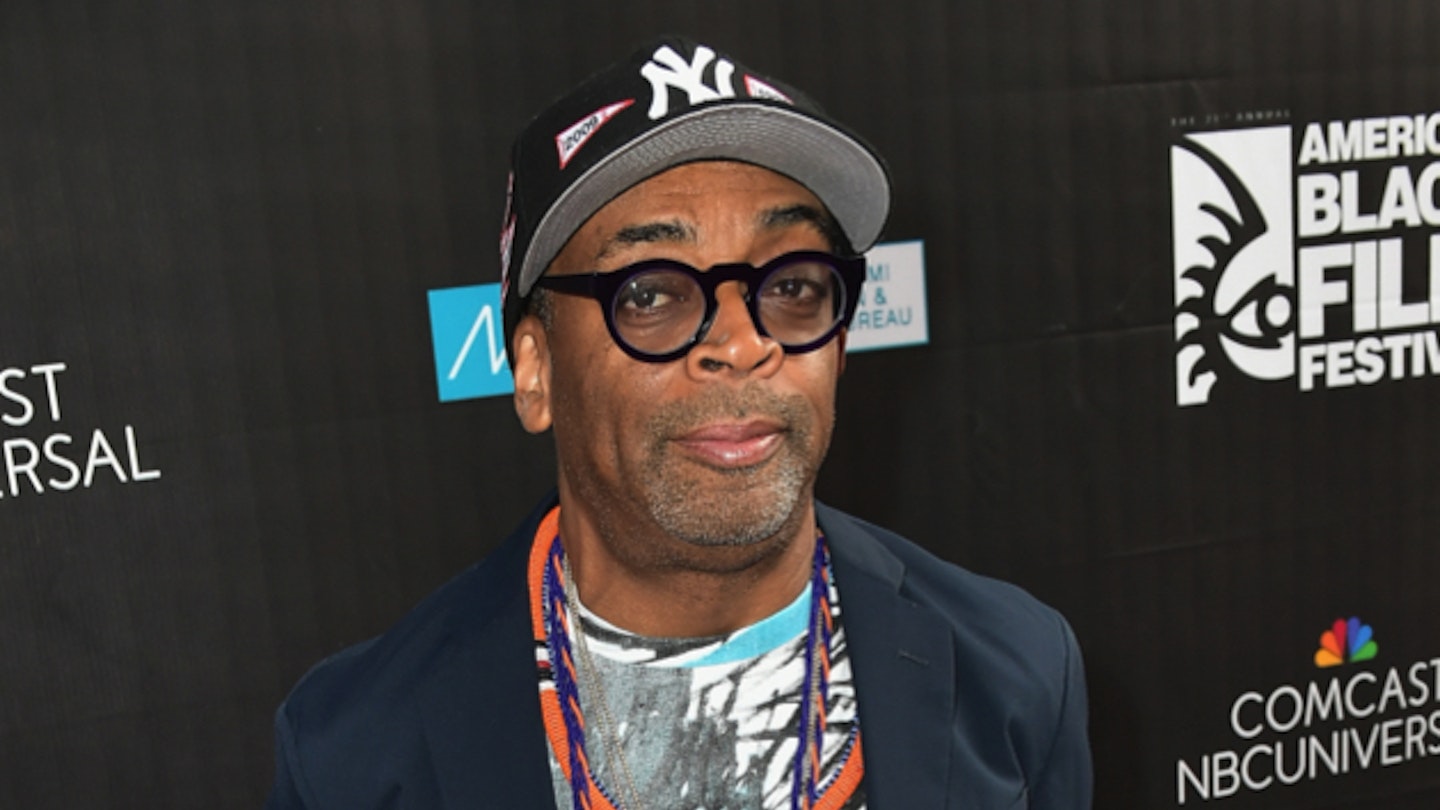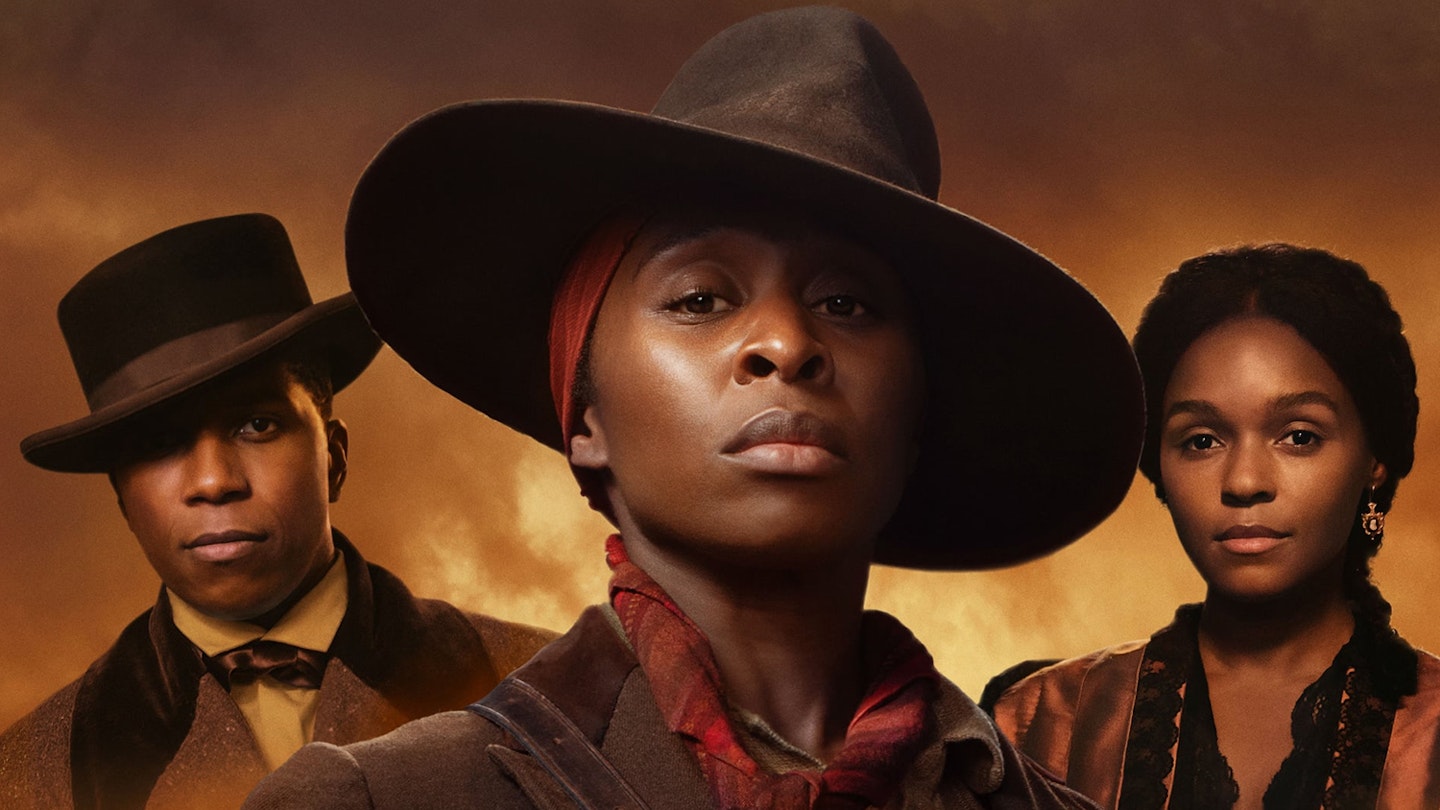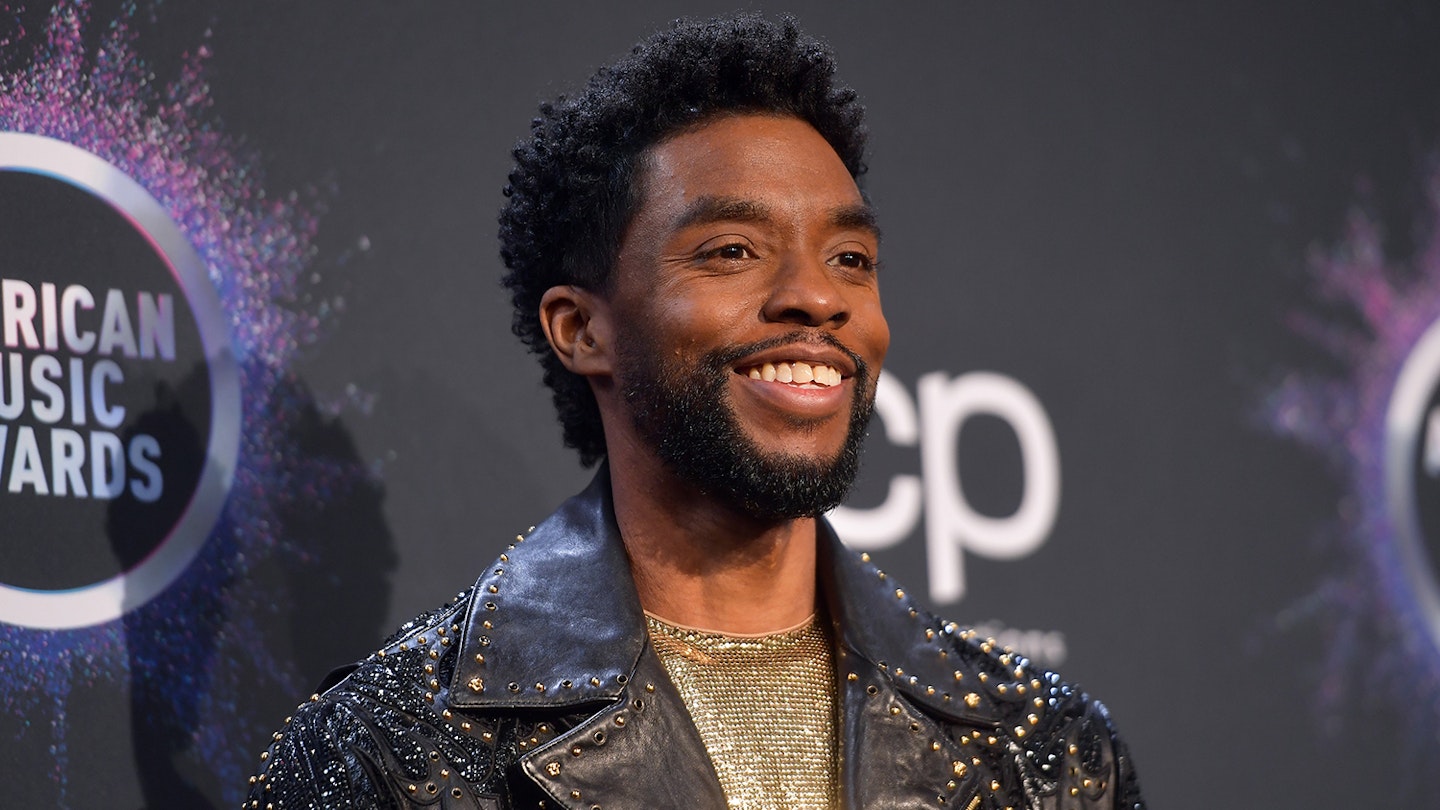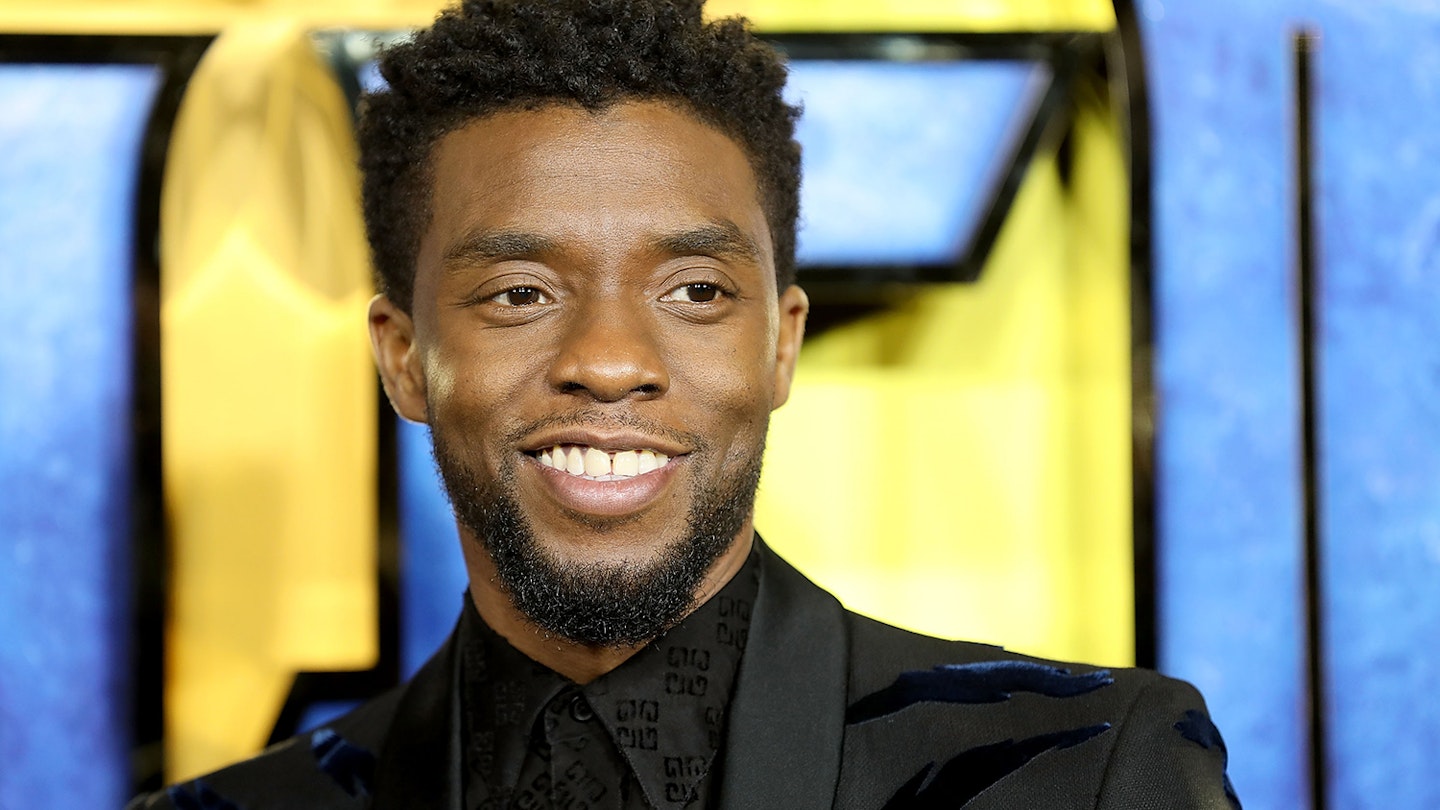It feels both reductive and redundant to refer to a Spike Lee joint as “timely”, but his latest will feel this way to many. Da 5 Bloods recaps a long history of state-sponsored murder and abuse of Black people, and suppression of protests just like those against the recent police murders of George Floyd, Breonna Taylor, Tony McDade, and so many more. But this film is also a conversation about American imperialism, weaving a connective thread between the crimes of law enforcement on home soil and the disproportionate conscription of Black people, as well as horrifying atrocities committed by US soldiers abroad. This already threatens to make the film sound like a debilitating affair, but it’s far from it — if anything, it’s often quite funny, with plenty of colourful banter to go around.
The eponymous Bloods are military veterans of different social strata and political alignment who have returned to Vietnam to pay final respects to the leader of their unit, Stormin’ Norman (Chadwick Boseman in flashback, with regal charisma), and get rich by finding MIA gold while doing so. As tensions rise between the old war buddies, Lee creates more thorny, complex morality than in his other recent films; these characters were conscripted and exploited, but were still part of an invading force. Characters and viewers alike are confronted by acts perpetrated by American infantry, as horrific images of war crimes linger on screen, daring you to look away.
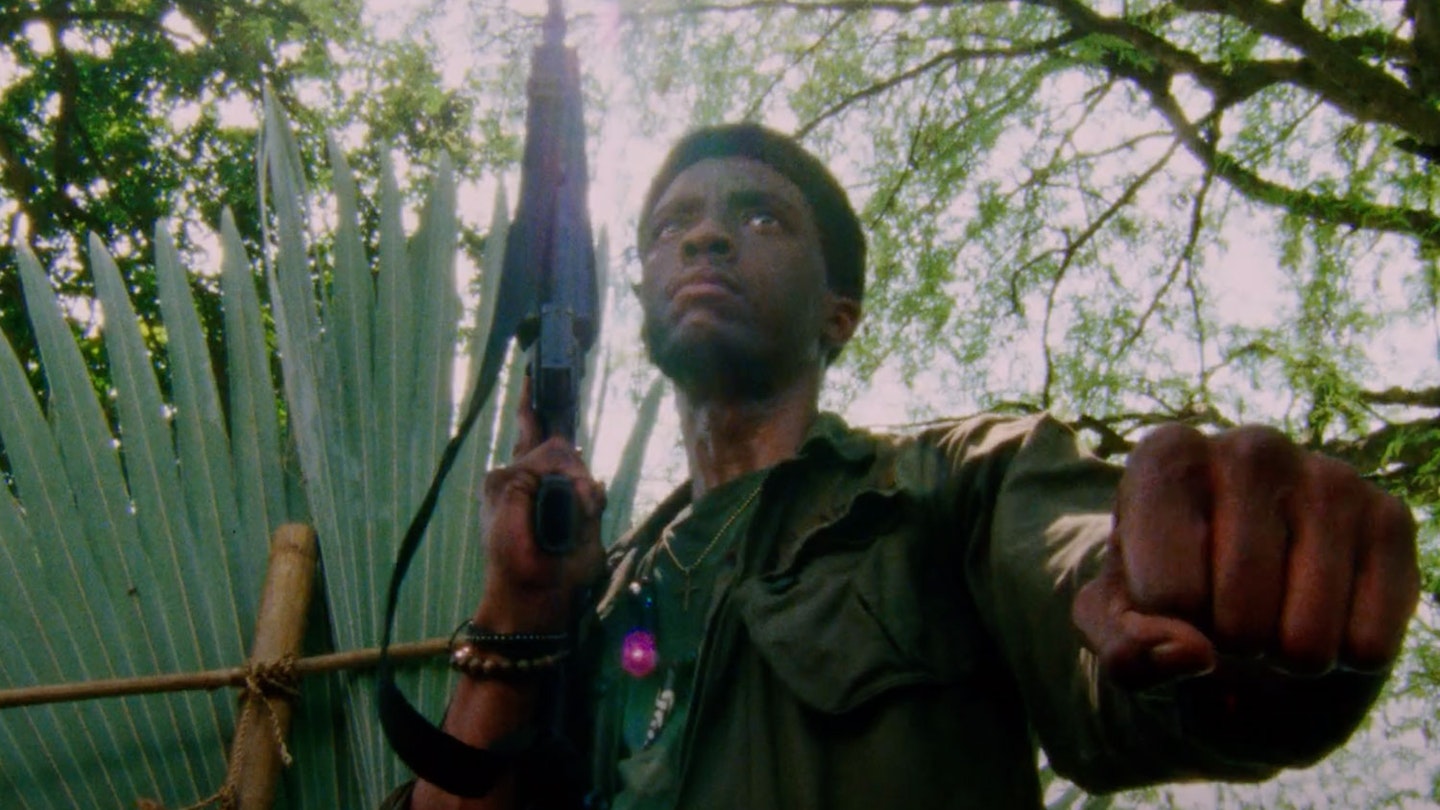
Paul (Delroy Lindo instilling the character with paranoid delirium) in particular spouts hateful slurs and holds onto a misguided, xenophobic patriotism, buying into rhetoric that helps justify the horrors of his past, bringing out the tension between him and his son David (Jonathan Majors, the standout of The Last Black Man In San Francisco), as the latter struggles with his ties to this traumatised but prejudiced man. There’s a fascinating direct dialogue with Apocalypse Now, with visual nods and similar story beats throughout — announced from the moment Coppola’s film’s title card looms over a DJ set in a Vietnamese bar. Only here, Colonel Kurtz is a guy wearing a MAGA hat.
The madness that follows is worth the wait, as the quest for gold spirals bloodily out of control.
A blend of road trip, treasure hunt and war movie, it’s a tough balancing act, and that first hour can feel as though it’s missing the dynamism and colour of Lee’s exploration of urban spaces, as he leaves behind his comfort zone for wide-open rice paddies, rivers and dense jungle. But the madness that follows is worth the wait, as the quest for gold spirals bloodily out of control. Newton Thomas Sigel’s camerawork shifts back and forth between different aspect ratios and colour grading as Lee navigates different time periods; the lensing eventually becomes more familiar, with Lee’s confrontational, direct-to-camera monologues emerging as time passes and anger builds. It’s all backed by a typically rousing score from long-time collaborator Terence Blanchard, accompanied by songs from Marvin Gaye’s What’s Going On album — sometimes employing Gaye’s naked vocal — that are used sparingly, and very effectively.
The usual caveats of late-era Spike Lee apply. Da 5 Bloods is almost overloaded with ideas, leaving room for only very thinly sketched female characters. The paternity of the daughter of a Vietnamese sex worker is touched on, but never from her perspective. French land mine disposal expert Hedy (Mélanie Thierry) appears as a fascinating riff on the plantation owners from the ‘Redux’ cut of Apocalypse Now, but her arc fizzles out. Black women still remain at the sidelines. This has been a fairly consistent element of Lee’s work, and continues to disappoint.
At least Hanoi Hannah (a real radio personality played with major cool by Veronica Ngo) is given some room to stand out. Some of the film’s most striking moments are hers, as she broadcasts to Black American soldiers, calmly smoking as she questions fighting for a country that kills and oppresses them. Meant to discourage American GIs, her words sound more like solidarity when directed at Black soldiers. It’s also here that Lee’s long-standing use of archive footage to reinforce dialogue proves most powerful.
Between his multiple jabs at Trump (“the Klansman in the Oval Office”), Lee shows how the history of film ties into America’s imperialism as well as fundamental anti-Blackness. Da 5 Bloods doesn’t pretend to tell a complete history of cinema’s relationship with the war (here mostly and rightly referred to as “the American War”) so much as it works to re-evaluate stale narratives, and highlight those that remain untold. This is, of course, still an American film set in Vietnam, but it’s one that tells the story from a viewpoint too often minimised.
